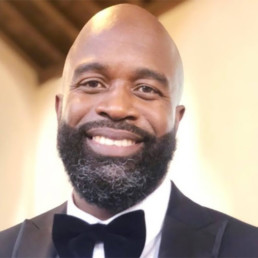
Written by Dwight Weir
Dwight is a Deputy Headteacher and Life Coach. He is also an inspector for British Schools Overseas. Dwight has a passion for coaching and leadership development.
Oftentimes we hear about the coach and the skills required to be an effective coach. Not much is said about the coachee – the other very important one in the relationship. The coachee, is a person who receives training from a coach. My learnings from various coaching experiences as a coachee have allowed me to craft certain skills and attitudes which I share as the skills or attitude needed by coachees.
- You answer your own questions. In answering your own questions, you are often engaged in a radical thinking process, examining your challenge and context and then finding the best way through the challenge. The thinking environment is a philosophy of communication developed by Kline (2009), which enables people to think for themselves and think better together. It is a simple, rigorous and radical set of processes. Coaches don’t answer your questions but provide you with the means to think through and find answers yourself.
- You take more risks – It is through risk taking that you know if your ideas will work. On the journey to success – radical decisions are made. You make these decisions as you know you’ll be able to reflect and discuss your thought process with the experienced other – the coach.
- You become more reflective – a great amount of the discussions with the coach is reflective. Researchers such as Muir and Beswick (2007) suggest that there are different levels of reflection that can take place, which move from descriptive to critical forms. It is the critical reflections that help us transform our practices.
- You must embrace quiet moments – embrace quiet moments as you think through your own hurdles. During the mentoring process these quiet moments are filled with answers by the mentor. Within the coaching relationship you don’t need answers you need a sounding board – the experienced other – the coach, to discuss your ideas. Here you find out for yourself. Notice ‘find out’ not told about.
- You become open to criticism – great coaches are frank and open. In coaching relationships you are told the brutal truth about your observed movements, dialogues, expressions and attitude. During your intake session a good coach will ask you how you’d like to be challenged or not. Does it make sense you start this journey, not wanting to hear the truth? Feedback is a gift. You can return the gift. But on these occasions, you keep the gift, as in true coaching relationships trust is the base from which change is realised.
A lot can be gained throughout coaching journeys and relationships. What is more and more apparent is, coaches don’t give answers but feed with questions which enable meaningful thought and self-discovered answers to your challenges. This is a skill only the experienced other could exhibit flawlessly and empower the coachee to unravel options and find answers. I describe this process as a journey, this relationship develops gradually after establishing trust and an openness to feedback from your coach.
Coaching relationships should be for a proposed period of time. It should be anticipated that the experienced other will equip coachees with the skills to enable their success then release them to grow.
Can you be coached if you don’t display these attitudes? Of course – it just might take you a little longer.

